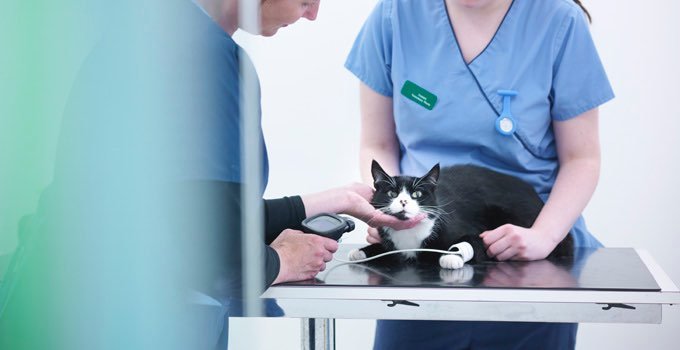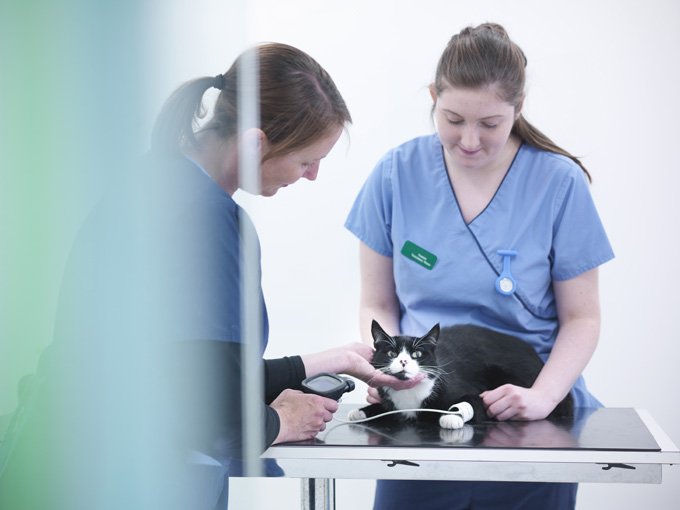It’s always stressful taking a pet in to the ER. I should know, having done it numerous times over the years, for everything from hypoglycemia to congestive heart failure. But have you ever wondered what it’s like on the other side? It can’t be easy, seeing animals with devastating injuries or serious illnesses day after day, night after night. How do ER veterinarians and techs cope with the stress of their job?
Gallows humor is one way. Most pet owners probably wouldn’t appreciate the jokes they might overhear if they were a fly on the wall in treatment areas, but black humor is a common and usually effective strategy for relieving the pressures of a stressful job.
“Humor is a defense mechanism, and we employ that a lot in the ER,” says emergency and critical care specialist Tony S. Johnson, clinical assistant professor at Purdue University College of Veterinary Medicine.
Studies show having a sense of humor reduces the effects of stress in several ways. Humor can help the caregiver challenge self-defeating thoughts or provide distance from a stressful situation. According to a 1990 study, emergency workers say it helps them focus on the task at hand rather than on their emotions.
A thick skin and the ability to compartmentalize emotions are just as essential to an ER veterinarian’s skill set as surgical ability, multitasking, and a good petside manner.
“I think if you can distance yourself, you can function better professionally,” Johnson says. “In those cases where I get emotionally involved, I’m less efficient.”
“Being the best” is another technique adopted by people in this field. Who doesn’t recognize that from television shows such as House or Grey’s Anatomy?
“Some people just become the best doctor they can,” Johnson says. “They use that as a shield so they can know they did the best they could and can say ‘I don’t think anybody could have saved that patient.’”
Not everyone is cut out for this kind of work. The stress of the job either weeds them out or causes them to cope with it in destructive ways.
“If you see a particularly horrid case and you’re a wreck and you can’t function, either you’re not going to carry on with that career path, or the next time you’re not going to let yourself get so involved,” Johnson says. “I always joke about my heart being a tiny shriveled-up black little thing because I’ve seen so much hell over the years.”
Some follow a destructive escape route. They turn to drugs and alcohol or have troubled relationships, Johnson says.
The profession recognizes that stress is a concern. Veterinary schools provide information on coping with stress, and it’s a common topic at veterinary conferences and in veterinary publications.
In the end, time and experience work their magic. Learning to deal with stress is a skill, just like any other that a veterinarian develops.
“You just find what works and what doesn’t,” Johnson says.










